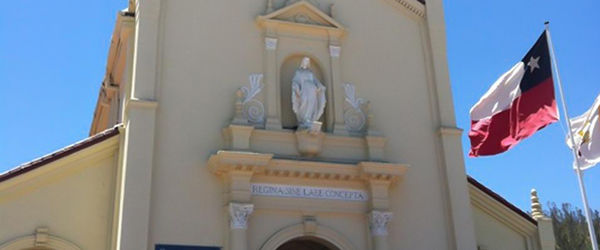Drawing upon history as well as current philosophy, Bill Cahoy, dean of Saint John’s University School of Theology in Collegeville, Minn., offered an insightful and inspiring presentation of what it means to be an adult Catholic Church to parishioners, Bible study leaders, catechists and more recently at St. John Vianney Church in Hacienda Heights. “Responsibility, Leadership and Change: The Challenges of an Adult Church” was the topic of this Theology Day presentation, the first such Theology Day seminar that Los Angeles archdiocesan organizers hope will be the start of more to come.The dean of theology at Saint John’s since 1999 and on the faculty since 1990 teaching both graduate and undergraduate classes, Cahoy has been deeply involved in various aspects of the development of the St. John’s Bible (often displayed at the Los Angeles Archdiocese Religious Education Congress) and related work in theology and art.Cahoy — who has written about S√∏ren Kierkegaard, the Catholic Intellectual Tradition, Benedictinism and theological education — made the case for an “adult” Catholic Church where all the faithful are engaged as compared to an “adolescent” Church where the host of believers want to be “taken care of” by a few.“The idea is that lay people have often seen themselves as ‘children’ and now we have a challenge to address matters as adults,” he says. “It’s not just the eight-year-old that is called to be a disciple, but the 28-, 38-, 48- and 58-year-old.”Laying the foundation, Cahoy compared two passages of Scripture: from St. Matthew (Jesus tells his disciples that they must “become like children”) and St. Paul’s Letter to the Corinthians (“When I became an adult, I put an end to childish ways”).“What do you think God is asking of us?” Cahoy asked the participants who discussed the intrinsic nature of child-like and adult-like. Humans start life full of wonder, awe and joy, trusting and believing in what grown-ups tell them. As adults, humans are skeptical, doubtful and often judgemental (hopefully in a good way), take on responsibility for actions and use experience and education to solve problems.Just like that journey from needy infant to responsible adult — and still retaining the joy of youth — the Church too, contends Cahoy, has grown and developed over the centuries.After a brief historical overview of the Church from apostolic times, through Protestant Reformation, the rise of democracy and into the eras of Vatican I and Vatican II, Cahoy presented a leadership theory based on Ron Heifetz’s work, “Leadership Without Easy Answers.” Heifetz is the co-founder of the Center for Public Leadership at the John F. Kennedy School of Government, Harvard University and co-founder of Cambridge Leadership Associates. He contends that there are two ways to look at and deal with problems, solutions and changes involving leadership: technical or adaptive. —Technical changes involve getting an expert to fix it, much like when a sick person goes to a doctor and gets a simple pill. —The adaptive solution is more complex and requires participation. Consider someone with heart disease: A doctor can guide the patient, but the patient will have to make lifestyle and dietary changes in order to survive. The patient has to adapt to a new reality — or die. Both scenarios can be applied to organizations like the Church. The challenge, said Cahoy, is to change the environment without losing identity.“The single most common leadership failures,” he noted, referring to Heifetz, “is to treat an adaptive challenge as if it were a technical one. We as a church are facing significant adaptive challenges today.”In the past, he pointed out, priests were the best educated leaders in the community, giving him the “father knows best” seal of approval by not only parishioners but community leaders. “The church is not a democracy, but it’s not a monarchy either,” said Cahoy. Being an adult means taking on responsibility — and that’s pressure that many people don’t want. “We’d rather put the problem back on our leaders — which is akin to ‘blaming our parents’ and letting someone else fix the problems,” said Cahoy. Emergent and adult Catholics need increasing education about their responsibility, but priests also need to be properly prepared to lead Catholics as adults, he continued. “They are used to speaking and being obeyed,” he said. “Like well-meaning parents, they aren’t letting their ‘children’ learn and discover what it means to be an adult.”Cahoy pointed to two major influences that will fuel the adaptive changes: the declining number of priests and the clergy sexual abuse. “Our leaders were trying to protect us from scandal, but in the process caused more damage,” he asserted. “This really points to the fact that everyone needs to be treated as adults in the church — we can handle the truth. I wish we didn’t have to pay this high tuition to get this education.”Overall, Cahoy sees the trauma of change as a way for Catholics to re-establish their identity as a people of God. “‘What am I called to do?’ is the question all Catholics must ask of themselves as adult Catholics,” he said. “My hope is that people feel empowered to take on responsibility for our church to create the Body of Christ here on earth.”

